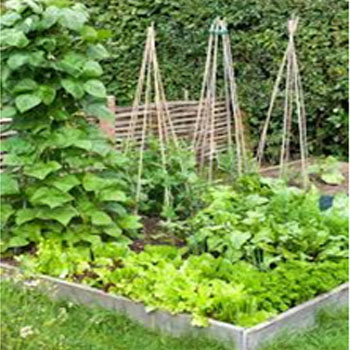Learning Standards/Objectives:
- To teach students about the food security & sustainability issues, while empowering them to help their families and others.
- Increase consumption of fresh produce and promote collaboration with partners for resources.
Serve and Grow
- Status: Open Project , Ongoing Project
- Possible Hours: 20
- Categories: Peace and Kindness, Citizenship and Civic Engagement, Environment and Sustainability, Health and Wellness, History and Culture
- Schools: Open to All Schools
We are looking for high school students who would like to gain experience in an active and rewarding environment in our community gardens. Our Serve and Grow volunteers will receive hands-on opportunities that foster workplace skills, personal connections, and community service. Volunteers should expect to be accompanied by a site supervisor and possibly work alongside AmeriCorps GSC members. Students must be in good mental, emotional and social health and be able to function in a group setting in a positive and cooperative manner that displays tolerance and respect for themselves and others.
Preparation Instruction:
Get to know us by checking out our website and social media. Learn about community gardening. On your service day wear appropriate attire which includes: a t-shirt, comfortable athletic shorts, socks, and shoes (required). It is also recommended to bring a water bottle, lunch and/or snacks, sunscreen, and a bag to hold all personal items. Water will be provided on site.
Activity Instruction:
Volunteers will:
- Engage in a variety of garden tasks including planting, watering, weeding, harvesting, preparing garden beds, maintaining an aquaponics system, and other garden activities
- Learn how to cultivate their own food through learning about methods of sustainable farming and other ways to improve food security on Guam.
Volunteer Schedule - Mondays and Thursdays from 3:30-5:30 p.m. at the G3 Community Garden (across Hagatna Post Office)
For other volunteer opportunities throughout the year visit
https://gusustainable.org/events
Reflection Instruction:
Your individual reflection should answer the following questions:
What activities did I participate in?
What is something new I learned?
How did these activities positively affect me and the local community?
Learning Standards/Objectives:
Volunteers will become more knowledgeable about Guam’s food system through learning how to grow their own food and methods of sustainable farming.
STANDARD 2 SCIENCE: Life Science: Students understand the diversity and unity of living organisms, the living environment, and principles of ecology.
BI.2.26: Explain that the amount of life any environment can support is limited by the available energy, water, oxygen, and minerals, and by the ability of ecosystems to recycle the residue of dead organic materials; recognize, there fore, that human activities and technology can change the flow and reduce the fertility of the land.
BI.2.30: Recognize and describe how human beings are part of Earth’s ecosys tems and that human activities can, deliberately or inadvertently, alter the equilibrium in ecosystems
BI.2.31: Understand and describe how organisms are influenced by a particular combination of living and nonliving components of the environment.
BI.2.32: Recognize and describe how the physical or chemical environment may influence the rate, extent, and nature of the way organisms develop within ecosystems.
STANDARD 1: HEALTH EDUCATION: Core Concepts: Comprehend concepts related to health promotion and disease prevention to enhance health.
HS.1.1: Predict how healthy behaviors can affect health status
HS.1.2: Evaluate the interrelationships of physical, mental/emotional, and social health.
HS.1.3: Analyze how environment influences personal and community health.










